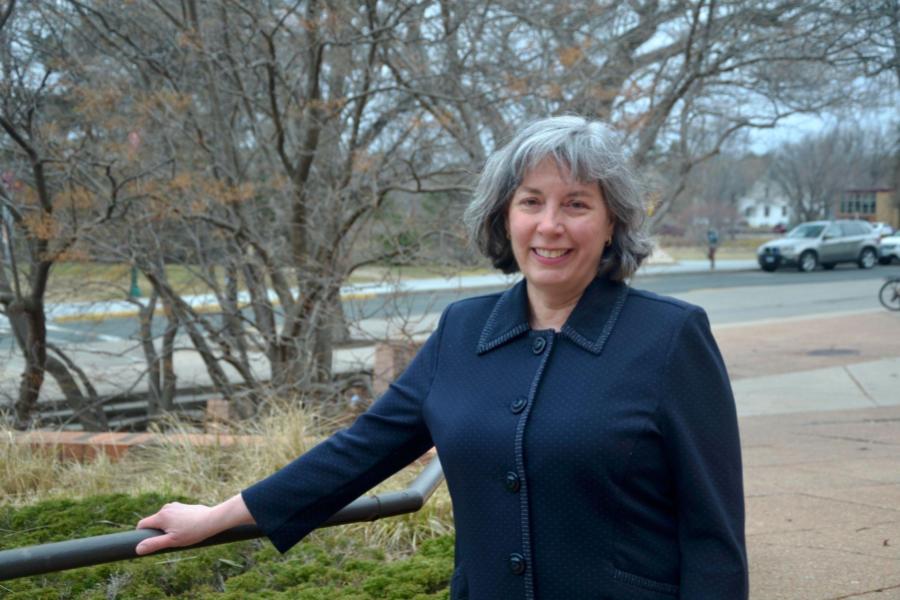
MINNEAPOLIS/ST. PAUL (03/26/2024) — Though retirement brings freedom and excitement, it can also bring loneliness and stress from changes to long-standing routines and schedules.
Kate Schaefers, director of the Osher Lifelong Learning Institute (OLLI) at the University of Minnesota, answers questions about easing the transition to retirement and embracing this next stage of life.
Q: How do you know it’s the right time to retire?
Schaefers: Retirement is more nuanced than a one-time event — it’s a process, with pivots and course corrections. The right time to retire is driven by the whole picture of what is most important, what works, and how to fund it.
Increasingly common is the concept of “unretirement,” when people work after retirement by choice and for added income — only 39% of workers aged 50–64 believe they will have enough money to live comfortably in retirement, according to a 2023 Gallup survey. Many shed career jobs in favor of alternative ways of working: part-time work, consulting, project-based and gig work are options that fit with a new, sustainable life chapter.
Q: What are some unexpected challenges people might face?
Schaefers: We underestimate the importance of friendships, teamwork and sense of belonging that comes from our work. Despite best intentions to stay in touch, co-workers move on without us — a sobering reality. Too often, retirees struggle to find new friends and social networks. Strong relationships are more important than anything else when it comes to happiness, health and longevity, according to longitudinal data from Harvard University. That’s why ready-made communities like OLLI at the University of Minnesota are so valuable for retirees.
Another challenge is the shift from saving to spending. When it comes time to spend down retirement accounts, it can be difficult and even painful to face the realistic fear of outliving our resources. A solid budget and a mental shift are needed. Part-time income might also ease some of those fears and open the door to spending on things that enrich retirement, like trips and experiences.
Q: What strategies can help people better plan for retirement?
Schaefers: Dwight D. Eisenhower famously said, “Plans are worthless, but planning is everything.” Have plans for the important things — finances, health, relationships and lifestyle. However, life is uncertain, so flexibility is key. As you transition into retirement, carve out a defined period (e.g., the summer after you retire) to decompress. Put something exciting such as a trip or fun project on your calendar to ease the transition. As you adjust, start building your new daily schedule, including activities that align with your life priorities. Will an exercise class keep you on track with staying active? Will watching grandchildren give you quality time with loved ones? Will taking an OLLI class spark your curiosity? Give yourself permission to experiment and adjust.
Q: How can people create structure and routine in this phase of life?
Schaefers: We yearn for a life on our terms, without alarm clocks and schedules to confine us. Yet people may feel rudderless without work routines. In our productivity-oriented society, busyness is a virtue and idleness-aversion is a thing. It’s easy to fall into the trap of keeping busy but not feeding our souls.
Stephen Covey’s success habit of putting first things first offers a powerful guide for retirement. Start with what matters most to you — the rocks — and build those into your routines first. Everything else — the pebbles, the sand, the water — are fillers, and it’s okay if those fall through the cracks. It will take focus and practice (and maybe some idle time to think!), but in the end it’s a good strategy for turning your values into action.
Q: What resources does the U of M offer to help retirees stay engaged?
Schaefers: Lifelong learning is key to an active retirement, and nothing beats the enrichment that comes from a community of learners. OLLI at the U of M offers hundreds of courses to spark your curiosity, book clubs and special interest groups to connect you with peers, and opportunities to volunteer your talents to the community.
OLLI is available for an annual $300 membership, but we are offering free online lectures this spring so you can sample engaging U of M research topics, including Treating Cancer as an Invasive Species; Awesome Apples: Honeycrisps to Kudos; and Diabetes, Obesity and the Next-Generation Drugs Shaping our Future, and more. Spring lectures are on Thursday afternoons from March 28 - May 2. You can sign up for one or more lectures at ccaps.umn.edu/olli/olli-u-lecture-series.
Kate Schaefers is the director of the Osher Lifelong Learning Institute at the University of Minnesota, which is part of the College of Continuing and Professional Studies. She also is a psychologist, coach and educator. She coaches professionals who are transitioning into new roles, jobs and careers, and organizations that are exploring ways to tap the talent of a multigenerational workplace. A past president of AARP-MN, Schaefers currently serves on the AARP-MN Executive Council. Learn more about OLLI at ccaps.umn.edu/olli.
About the College of Continuing and Professional Studies
Established in 1913, the College of Continuing and Professional Studies (CCAPS) empowers lifelong learners to achieve their educational goals through professional courses, applied and individualized degrees and other academic pathways. With values that include Access, Learning, Inclusivity, Collaboration and Excellence, the College pursues a learner-centric environment where diverse ideas, backgrounds and identities are embraced. Learn more at ccaps.umn.edu.
About “Talking...with U of M”
“Talking...with U of M” is a resource whereby University of Minnesota faculty answer questions on current and other topics of general interest. Feel free to republish this content. If you would like to schedule an interview with the faculty member or have topics you’d like the University of Minnesota to explore for future “Talking...with U of M,” please contact University Public Relations at [email protected].
- Categories:
- Health
- Family and social relationships




